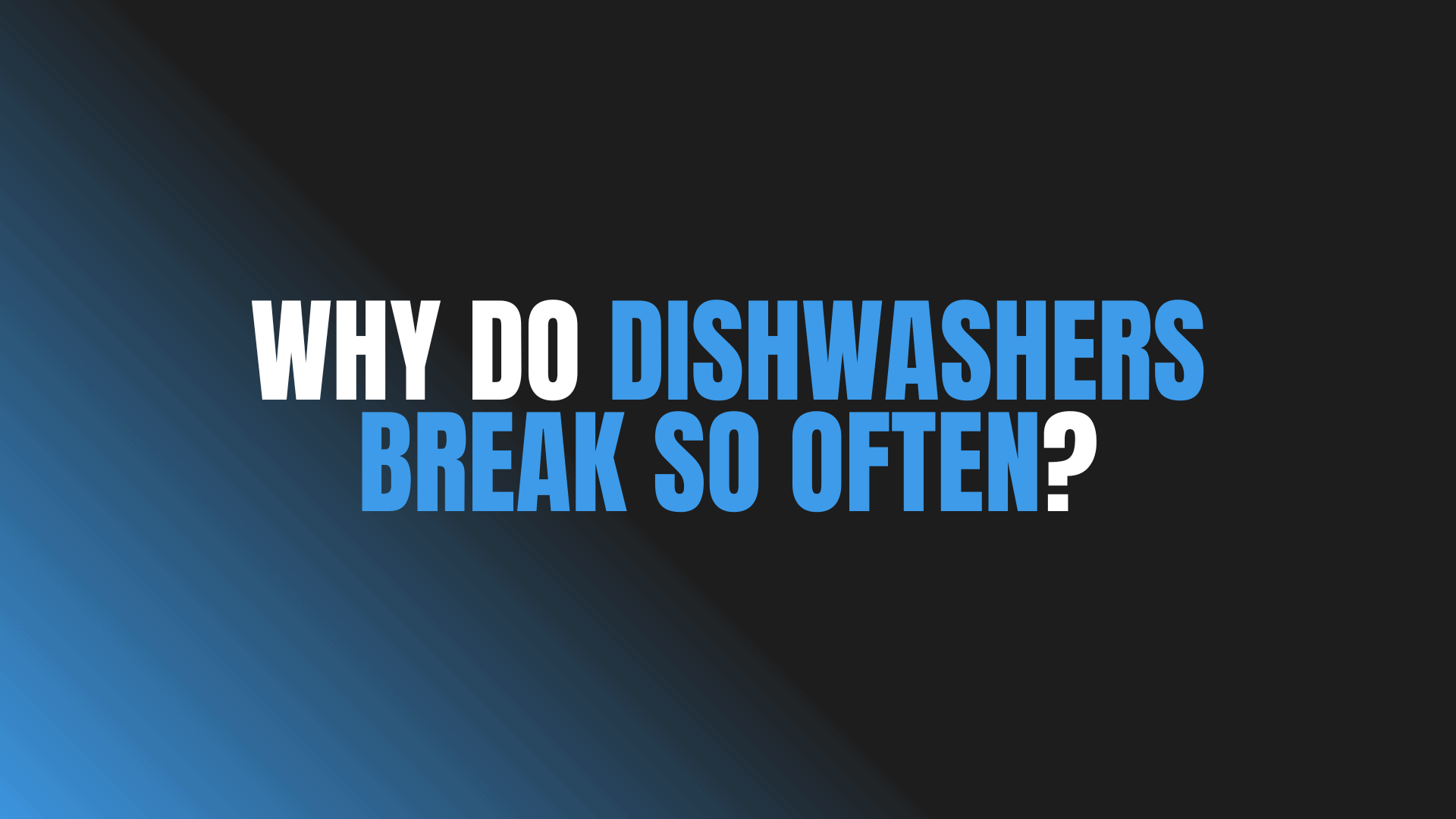
Question: Why Do Dishwashers Break So Often?
Answer: Dishwashers often break due to their complex components, frequent use, the presence of hard water, improper loading, and a general lack of maintenance like not cleaning the filter.
Common Dishwasher Breakdowns and How to Fix Them
Dishwashers are incredibly convenient, saving us valuable time and effort in the kitchen. But when they frequently break down, that convenience quickly turns into a frustration. Many homeowners face this very problem. This article dives into the common reasons why dishwashers malfunction and, more importantly, provides solutions.
From straightforward fixes to more intricate issues, we’ll help you understand the common culprits behind a faulty dishwasher. Our practical advice aims to empower you to extend your appliance’s lifespan and keep it running smoothly.
The Hard Truth About Hard Water and Your Dishwasher
If you have hard water, you’re likely seeing its impact on your dishwasher. Hard water contains high levels of minerals, like calcium and magnesium, which build up inside your appliance. This mineral accumulation directly affects performance. It can lead to clogs in the spray arms and reduces the effectiveness of your detergent, often leaving dishes with cloudy spots or a film.
To combat hard water’s effects, consider installing a water softener. Regular cleaning of your dishwasher is also essential; use a dedicated dishwasher cleaner to dissolve stubborn mineral buildup. Taking these steps can significantly improve your dishwasher’s longevity.
Ignoring hard water issues can lead to costly repairs down the line. Scale buildup can damage the heating element and clog other internal components. Address hard water problems promptly to keep your dishwasher running efficiently.
Click here for more information about Blue Kitchen Refacing
Related Article: What Should You Never Put in the Dishwasher?
Related Article: What Is the Most Common Failure on a Dishwasher?
Solving Drainage Woes in Your Dishwasher
Nothing’s worse than opening your dishwasher to find standing, dirty water. This usually indicates a clogged drain, preventing wastewater from exiting. Food particles, debris, or even broken glass can obstruct the drain hose. A blocked air gap (if your system has one) can also be a culprit.
Start by regularly inspecting the drain hose for any kinks or blockages, and clear them out. Check the air gap for obstructions. Don’t forget to clean the filter at the bottom of your dishwasher; this simple step resolves many drainage issues.
Ignoring drainage problems can lead to damage to the pump and potentially leaks. Addressing these issues quickly prevents further complications and ensures your dishwasher functions correctly.
The Power of Prevention: Regular Dishwasher Maintenance
One of the best ways to avoid frequent dishwasher breakdowns is through regular maintenance. Cleaning the filter removes trapped food particles and debris, while inspecting and cleaning the spray arms ensures proper water distribution. Don’t forget to wipe down the interior regularly to remove grime and residue.
Using a dishwasher cleaner periodically helps remove mineral buildup and deep-clean the internal components. Check your user manual for recommended cleaning frequencies. Following a consistent maintenance schedule like this will significantly extend your dishwasher’s lifespan.
Not only does regular maintenance prevent costly repairs, but it also ensures your dishwasher performs at its best, delivering sparkling clean dishes every time.
Quick Fixes: Troubleshooting Common Dishwasher Problems
Sometimes, your dishwasher might display an error code. Always consult your user manual to decipher these codes, as they point to specific problems. If your dishwasher isn’t starting, first check the power supply and make sure the door is properly closed and latched. For leaks, inspect the door seal and hoses for any damage.
If dishes aren’t drying, verify that the heating element is working and that the rinse aid dispenser is filled. Unusual noises might indicate issues with the spray arms or the motor. These basic troubleshooting steps can help you identify and resolve many common problems.
Troubleshooting minor issues yourself can save you time and money by avoiding unnecessary service calls. However, for more complex problems, it’s always best to consult a qualified technician.
Conclusion – Why Do Dishwashers Break So Often?
Dishwashers truly make daily life easier, but understanding why they sometimes fail is key to preventing frustration. By implementing the tips discussed in this article, you can significantly extend the life of your appliance. Remember, regular maintenance is paramount.
Things like proper loading techniques and actively addressing hard water issues also contribute to efficient operation. By proactively troubleshooting common problems, you can ensure your dishwasher continues to run smoothly and deliver perfectly clean dishes for years to come. What’s one simple maintenance task you can do for your dishwasher this week?

Blue Malue Get in touch with Blue here.
